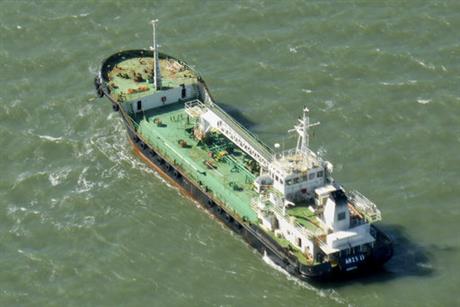The release of an oil tanker being held off the coast of Somalia largely depends on the European Union’s cooperation with the vessel’s assailants. The tanker’s hijackers are demanding a ransom. Reports from the European anti-naval force say that the gunmen holding the boat’s crew hostage are yet to specify the amount they require for the vessel and its occupants to be set free. The European Union was able to communicate with the ship’s master, who then reported the ship’s location as anchored off Somalia’s North East coast.
The vessel had previously sent out a distress call after it sighted boats approaching it at high speed. At the time, the tanker was traveling from Djibouti to Mogadishu, Somalia’s capital. Attempts to locate the ship remotely failed at the time since its tracking system was reportedly switched off. The Foreign Ministry of Sri Lanka has confirmed it has eight citizens aboard the tanker.
The gunmen who assailed the ship also made contact with an official of Alula town. This time, however, they told the town official that they were fishermen and that their fishing equipment had been destroyed by vessels fishing illegally in the area. Alula is situated near the ship’s location. The town’s district commissioner, Ali Shire Mohamud Osman has reported he is unsure on whether the gunmen are organized pirates or just fishermen as they say.
Mr. Ali said, “The men who are holding it claim that they are fishermen who suffered from the illegal fishing in the area. However, if we confirm that they are pirates, I will ask them to leave the area immediately. Otherwise, we will see how we can save the vessel.”
The tanker was transporting oil from Djibouti and is under the ownership of United Arab Emirates, the commissioner added. There had been previous conflicts over the flag the vessel had been sailing under during its transit.
Citing the same unsureness, the European Union Naval Force said it was too early to confirm whether the attack involved pirates. Eight people are believed to be onboard. The vessel has a capacity of over 12,000 tons of cargo. Seeking confirmation of just who exactly is involved, the Naval Force has sent a plane to the coastal area to undertake further investigations.
This is the first hijack off the coast of Somalia since 2012. Piracy in the area has significantly reduced. Primarily, this is as a result of increased international military patrols over the area. Additionally, local fishing communities have supported law enforcement in curbing piracy, causing it to reduce.
Smaller vessels have recently been seized in the area. However, ransom costs have significantly reduced. During the piracy crisis’ peak in 2011, ships attacked off Somali’s coast cost governments and private organizations a total of an estimated $8 billion.
In 2015, Somali had warned that piracy levels could increase if the international community did not help create employment ashore and take a stand in combatting illegal fishing. Some of Somalia’s fishers have turned to piracy after they lacked a way to earn money. This was as a result of illegal fishing trawlers off Somalia’s coast causing reduced fish in the area for the locals to sell.




